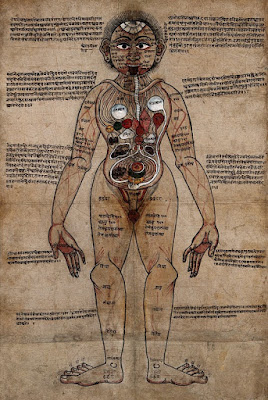Competing medical systems
What is a body? This might appear a facetious concern, however the response will be really various inning accordance with which clinical custom you speak with. Take Ayurveda, a conventional system of clinical understanding from India which has delighted in a renaissance of appeal in the West because the 1980s – and is the topic of a brand-new exhibit at London's Wellcome Collection.
Strolling rounded the reveal, one is motivated to check out various methods of comprehending and visualising the body. The Ayurvedic body varies considerably from that of European biomedicine, which is based upon dissection. The Ayurvedic body is a body of systems. It's conceptualised as being made up of 5 constituent components (mahābūta), 7 body compounds (dhātu) and 3 controling high top qualities (doṣa). Inning accordance with Ayurvedic concept, by going to to imbalances in between these concepts in a body, health and wellness may be advertised and disease prevented. The Ayurvedic ideas of the doṣas – vata, pitta and kapha could be seen in the West today advertising teas, soaps and massage therapies.
However obviously, there are numerous various other various conceptions of the body. There's the tantric comprehending, frequently conflated keeping that of Ayurveda. Tantra concentrates on the idea of power networks (nāḍīs) which have specific centres of focus along a line in the centre of the body (chakras). The conventional Chinese design, on the various other hand, emphasises the vibrant concepts of ying and yang as being critical for guaranteeing health and wellness. On the other hand, native recovery in numerous conventional societies determines issues in between the private and the higher social and metaphysical context as the reason for disease.
So what, after that, has identified the supremacy of one clinical system of studied one more? The response is much more complicated compared to the "appropriate" or "many precise" one. Prediksi Jitu Togel Singapore45 Terakurat Tanggal 8/12/2020
This intricacy is epitomised by the main item of the exhibit, among few illustrations of the classic Ayurvedic systemic summaries of the body. This 16th-century attracting, as Dominik Wujastyk's research study has revealed, was most likely created at the demand of an abundant, Nepalese customer by a scholar-physician, a scribe and a painter, none of which were fluent with the initial Sanskrit resource. The Nepalese musician was plainly affected by Tibetan clinical illustrations.
We have no idea exactly just how this picture was initially utilized or exactly just how prominent it was, however its development was reliant after patronage and intercultural trade. It ran out this blend of societies, after that, that came among one of the most renowned aesthetic discussions of the "Indian" Ayurvedic body.



